Foreign visits
RA Prime Minister Nikol Pashinyan’s Official Visit to the Federal Republic of Germany
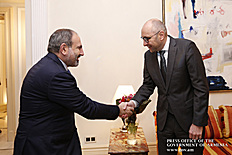 1670x1113px - 487 Kb
1670x1113px - 487 Kb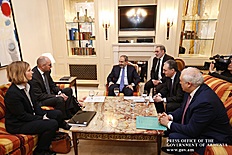 1670x1113px - 755 Kb
1670x1113px - 755 Kb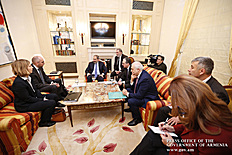 1670x1113px - 770 Kb
1670x1113px - 770 Kb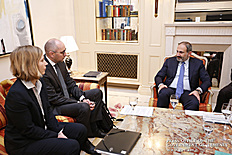 1670x1113px - 707 Kb
1670x1113px - 707 Kb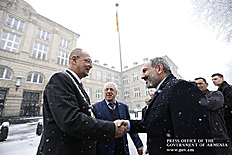 1670x1113px - 471 Kb
1670x1113px - 471 Kb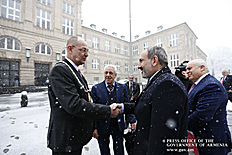 1670x1113px - 497 Kb
1670x1113px - 497 Kb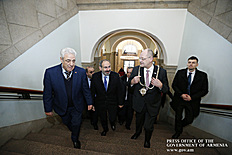 1670x1113px - 583 Kb
1670x1113px - 583 Kb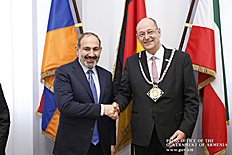 1670x1113px - 507 Kb
1670x1113px - 507 Kb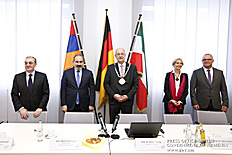 1670x1113px - 329 Kb
1670x1113px - 329 Kb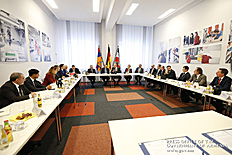 1670x1113px - 653 Kb
1670x1113px - 653 Kb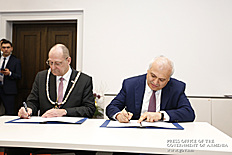 1670x1113px - 342 Kb
1670x1113px - 342 Kb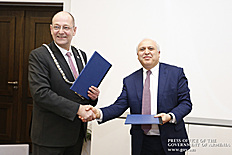 1670x1113px - 390 Kb
1670x1113px - 390 Kb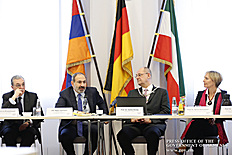 1670x1113px - 531 Kb
1670x1113px - 531 Kb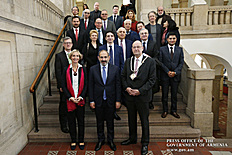 1670x1113px - 732 Kb
1670x1113px - 732 Kb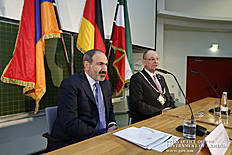 1670x1113px - 525 Kb
1670x1113px - 525 Kb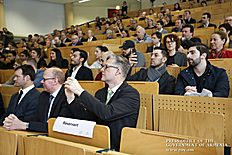 1670x1113px - 538 Kb
1670x1113px - 538 Kb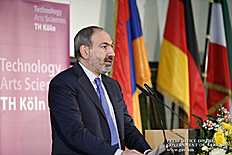 1670x1113px - 576 Kb
1670x1113px - 576 Kb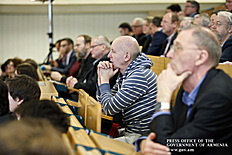 1670x1113px - 441 Kb
1670x1113px - 441 Kb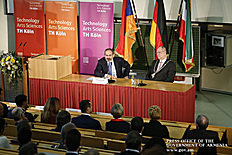 1670x1113px - 759 Kb
1670x1113px - 759 Kb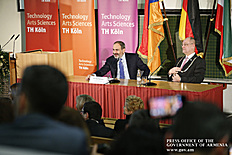 1670x1113px - 602 Kb
1670x1113px - 602 Kb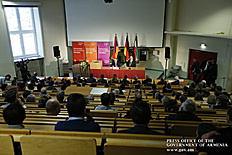 1670x1113px - 472 Kb
1670x1113px - 472 Kb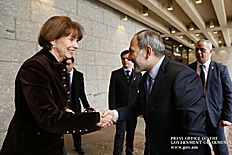 1670x1113px - 486 Kb
1670x1113px - 486 Kb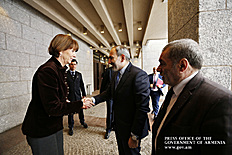 1670x1113px - 669 Kb
1670x1113px - 669 Kb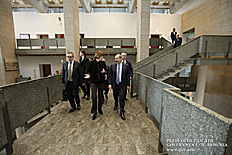 1670x1113px - 848 Kb
1670x1113px - 848 Kb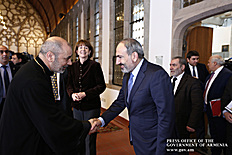 1670x1113px - 523 Kb
1670x1113px - 523 Kb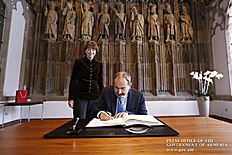 1670x1113px - 650 Kb
1670x1113px - 650 Kb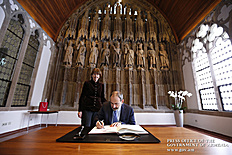 1670x1113px - 688 Kb
1670x1113px - 688 Kb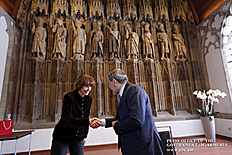 1670x1113px - 710 Kb
1670x1113px - 710 Kb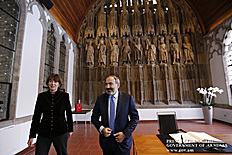 1670x1113px - 637 Kb
1670x1113px - 637 Kb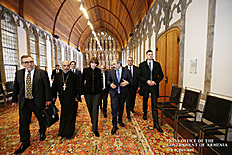 1670x1113px - 1 Mb
1670x1113px - 1 Mb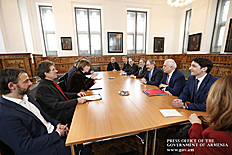 1670x1113px - 587 Kb
1670x1113px - 587 Kb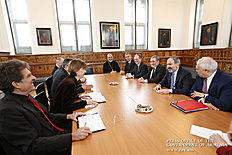 1670x1113px - 510 Kb
1670x1113px - 510 Kb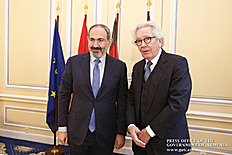 1670x1113px - 529 Kb
1670x1113px - 529 Kb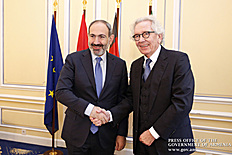 1670x1113px - 556 Kb
1670x1113px - 556 Kb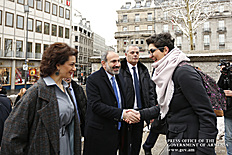 1670x1113px - 676 Kb
1670x1113px - 676 Kb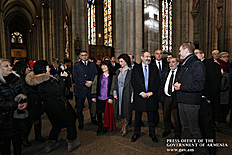 1670x1113px - 752 Kb
1670x1113px - 752 Kb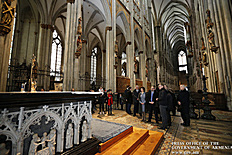 1670x1113px - 1 Mb
1670x1113px - 1 Mb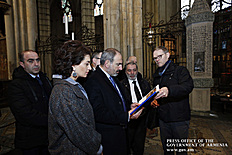 1670x1113px - 694 Kb
1670x1113px - 694 Kb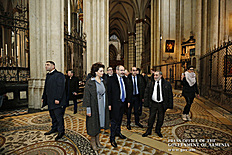 1670x1113px - 1011 Kb
1670x1113px - 1011 Kb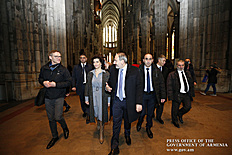 1670x1113px - 698 Kb
1670x1113px - 698 Kb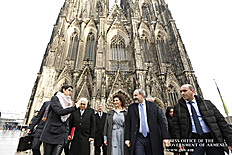 1670x1113px - 693 Kb
1670x1113px - 693 Kb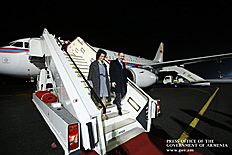 1670x1113px - 511 Kb
1670x1113px - 511 Kb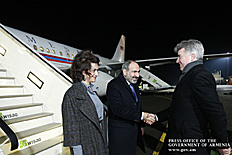 1670x1113px - 478 Kb
1670x1113px - 478 Kb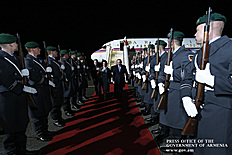 1670x1113px - 522 Kb
1670x1113px - 522 Kb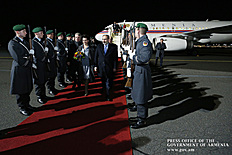 1670x1113px - 634 Kb
1670x1113px - 634 Kb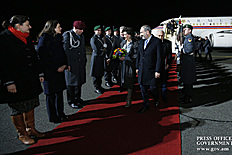 1670x1113px - 529 Kb
1670x1113px - 529 Kb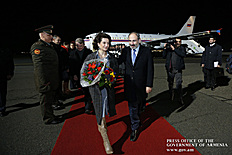 1670x1113px - 570 Kb
1670x1113px - 570 Kb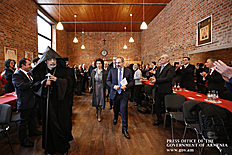 1670x1113px - 901 Kb
1670x1113px - 901 Kb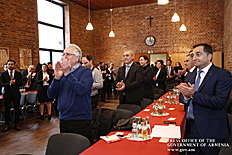 1670x1113px - 554 Kb
1670x1113px - 554 Kb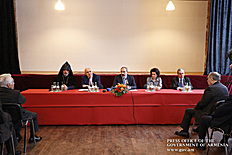 1670x1113px - 631 Kb
1670x1113px - 631 Kb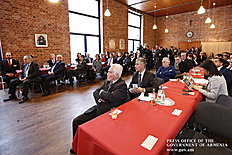 1670x1113px - 849 Kb
1670x1113px - 849 Kb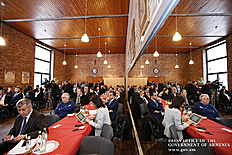 1670x1113px - 1 Mb
1670x1113px - 1 Mb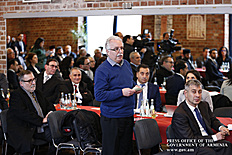 1670x1113px - 624 Kb
1670x1113px - 624 Kb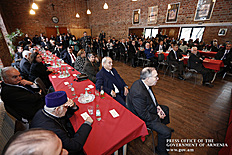 1670x1113px - 845 Kb
1670x1113px - 845 Kb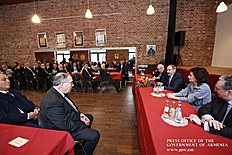 1670x1113px - 832 Kb
1670x1113px - 832 Kb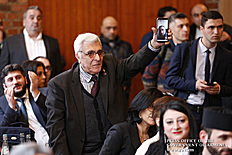 1670x1113px - 642 Kb
1670x1113px - 642 Kb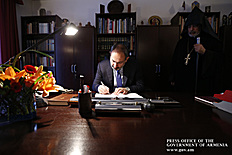 1670x1113px - 410 Kb
1670x1113px - 410 Kb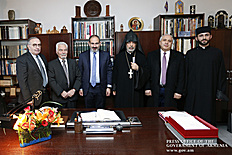 1670x1113px - 684 Kb
1670x1113px - 684 Kb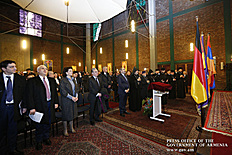 1670x1113px - 974 Kb
1670x1113px - 974 Kb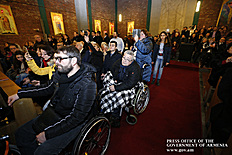 1670x1113px - 732 Kb
1670x1113px - 732 Kb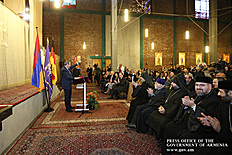 1670x1113px - 1 Mb
1670x1113px - 1 Mb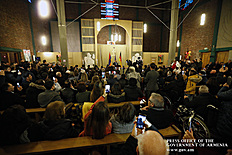 1670x1113px - 794 Kb
1670x1113px - 794 Kb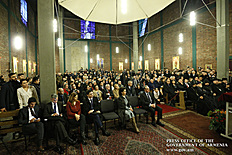 1670x1113px - 956 Kb
1670x1113px - 956 Kb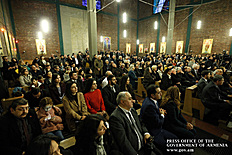 1670x1113px - 851 Kb
1670x1113px - 851 Kb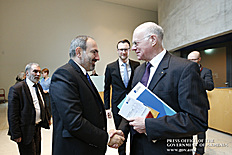 1670x1113px - 542 Kb
1670x1113px - 542 Kb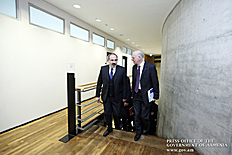 1670x1113px - 550 Kb
1670x1113px - 550 Kb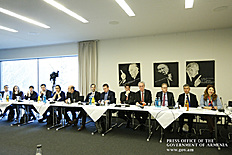 1670x1113px - 670 Kb
1670x1113px - 670 Kb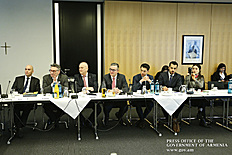 1670x1113px - 761 Kb
1670x1113px - 761 Kb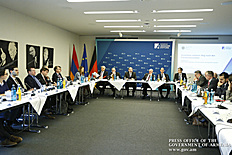 1670x1113px - 814 Kb
1670x1113px - 814 Kb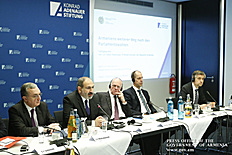 1670x1113px - 636 Kb
1670x1113px - 636 Kb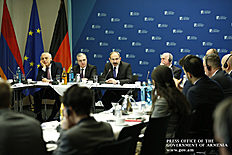 1670x1113px - 585 Kb
1670x1113px - 585 Kb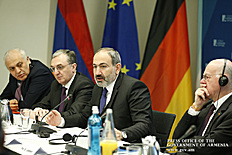 1670x1113px - 611 Kb
1670x1113px - 611 Kb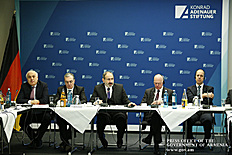 1670x1113px - 692 Kb
1670x1113px - 692 Kb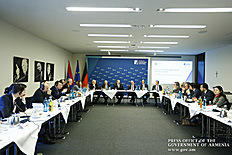 1670x1113px - 770 Kb
1670x1113px - 770 Kb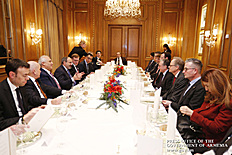 1670x1113px - 559 Kb
1670x1113px - 559 Kb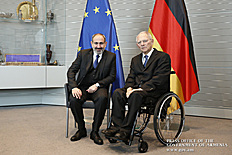 1670x1113px - 857 Kb
1670x1113px - 857 Kb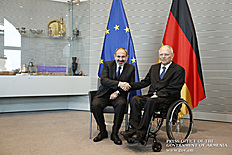 1670x1113px - 862 Kb
1670x1113px - 862 Kb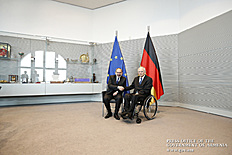 1670x1113px - 718 Kb
1670x1113px - 718 Kb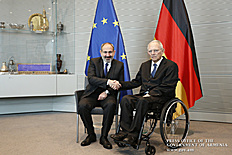 1670x1113px - 796 Kb
1670x1113px - 796 Kb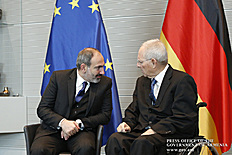 1670x1113px - 690 Kb
1670x1113px - 690 Kb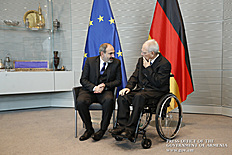 1670x1113px - 838 Kb
1670x1113px - 838 Kb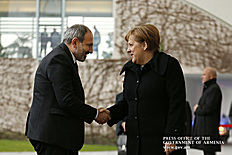 1670x1113px - 474 Kb
1670x1113px - 474 Kb 1670x1113px - 489 Kb
1670x1113px - 489 Kb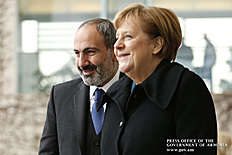 1670x1113px - 456 Kb
1670x1113px - 456 Kb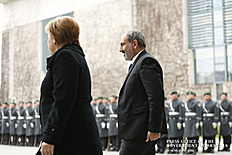 1670x1113px - 413 Kb
1670x1113px - 413 Kb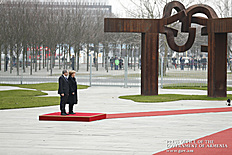 1670x1113px - 632 Kb
1670x1113px - 632 Kb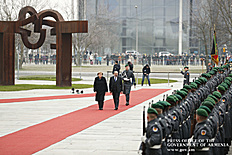 1670x1113px - 612 Kb
1670x1113px - 612 Kb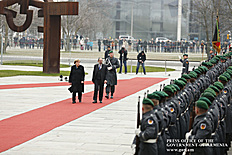 1670x1113px - 601 Kb
1670x1113px - 601 Kb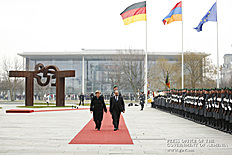 1670x1113px - 464 Kb
1670x1113px - 464 Kb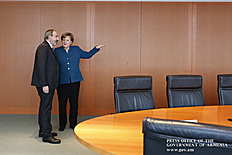 1670x1113px - 588 Kb
1670x1113px - 588 Kb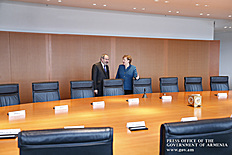 1670x1113px - 569 Kb
1670x1113px - 569 Kb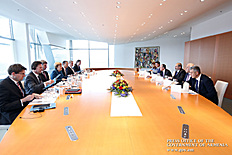 1670x1113px - 468 Kb
1670x1113px - 468 Kb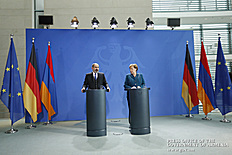 1670x1113px - 633 Kb
1670x1113px - 633 Kb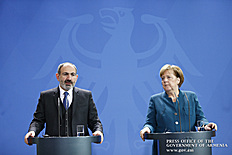 1670x1113px - 556 Kb
1670x1113px - 556 Kb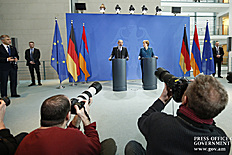 1670x1113px - 602 Kb
1670x1113px - 602 Kb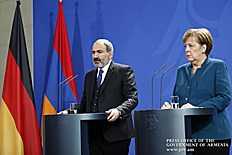 1670x1113px - 566 Kb
1670x1113px - 566 Kb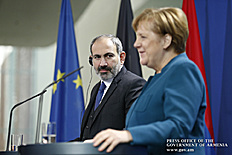 1670x1113px - 536 Kb
1670x1113px - 536 Kb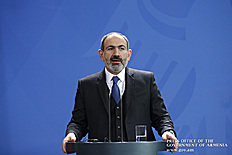 1670x1113px - 557 Kb
1670x1113px - 557 Kb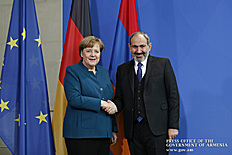 1670x1113px - 569 Kb
1670x1113px - 569 Kb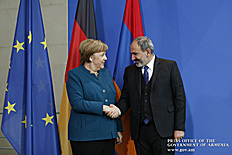 1670x1113px - 571 Kb
1670x1113px - 571 Kb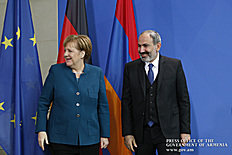 1670x1113px - 571 Kb
1670x1113px - 571 Kb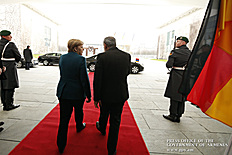 1670x1113px - 490 Kb
1670x1113px - 490 Kb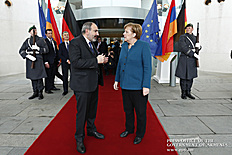 1670x1113px - 521 Kb
1670x1113px - 521 Kb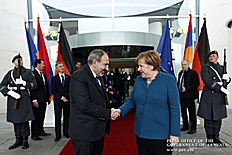 1670x1113px - 446 Kb
1670x1113px - 446 Kb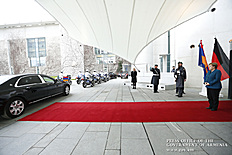 1670x1113px - 591 Kb
1670x1113px - 591 Kb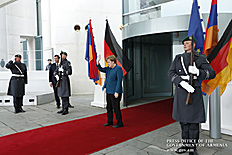 1670x1113px - 491 Kb
1670x1113px - 491 Kb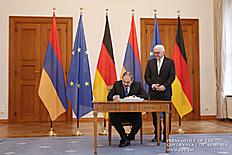 1670x1113px - 692 Kb
1670x1113px - 692 Kb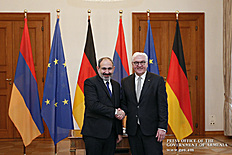 1670x1113px - 640 Kb
1670x1113px - 640 Kb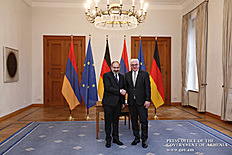 1670x1113px - 640 Kb
1670x1113px - 640 Kb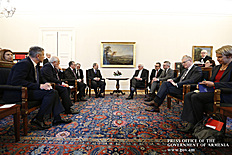 1670x1113px - 715 Kb
1670x1113px - 715 Kb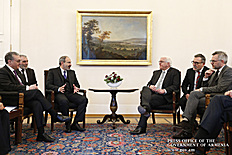 1670x1113px - 662 Kb
1670x1113px - 662 Kb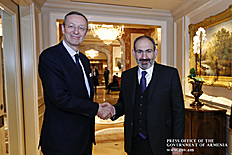 1670x1113px - 722 Kb
1670x1113px - 722 Kb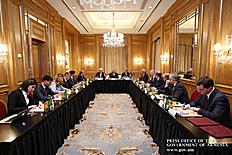 1670x1113px - 989 Kb
1670x1113px - 989 Kb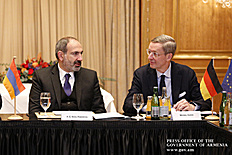 1670x1113px - 752 Kb
1670x1113px - 752 Kb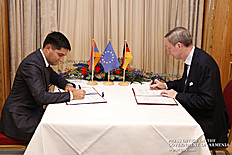 1670x1113px - 610 Kb
1670x1113px - 610 Kb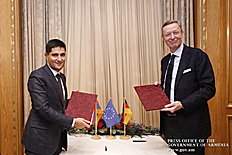 1670x1113px - 768 Kb
1670x1113px - 768 Kb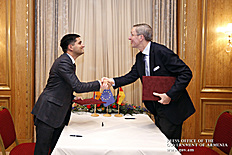 1670x1113px - 753 Kb
1670x1113px - 753 Kb
more 114 photos
Prime Minister Nikol Pashinyan has arrived in the Federal Republic of Germany on official visit. The Prime Minister’s first destination was the German city of Cologne. Early on January 31, Nikol Pashinyan met with German Development Bank (KfW) Eastern Europe Regional Director Olaf Zimelka.
The Prime Minister noted that KfW is an effective partner for the Republic of Armenia, with which a number of programs are being implemented in various sectors of the Armenian economy. In this context, Nikol Pashinyan highlighted the signing of a € 23,208,483.13 grant agreement under the Armenia Biodiversity and Sustainable Local Development Program with KfW Bank in November, 2018, which is one of the most promising projects in our region. The Premier emphasized that bringing this sphere to high environmental standards is among his government’s priorities, and he was glad to have a reliable partner in the face of the German Development Bank.
In turn, the KfW Regional Director noted that Armenia is an important partner for the German Development Bank, with which several joint programs have been implemented so far. Pleased with the ongoing cooperation with different government agencies, Olaf Zimelka said Armenia-KfW partnership promotes the development of Armenian-German relations and, in this respect, the Bank is keen to discuss and implement ever new initiatives.
The Prime Minister of Armenia and the KfW Regional Director discussed the current programs in the spheres of environmental protection, energy, agriculture, infrastructure, water management and reservoirs. They took the opportunity to exchange views on the prospects of cooperation in other promising areas.
* * *
Prime Minister Nikol Pashinyan, who is paying an official visit to Germany, called at the Technological University of Cologne.
Following the meeting with the leadership of Germany’s leading educational institution and discussing the prospects of bilateral exchanges in the field of science, a memorandum of cooperation was signed between the Technological University of Cologne and Armenia’s National Polytechnic University in the presence of Prime Minister Nikol Pashinyan.
The document was signed by Štefan Herzig, the Rector of the University, and Armenia’s Ambassador to the Federal Republic of Germany Ashot Smbatyan. The Memorandum provides that the two universities will develop scientific cooperation in the field of information and high technologies.
The Premier met next with the students and professorship at the Technological University of Cologne. Nikol Pashinyan made a speech, entitled “Armenia after the Velvet Revolution: Fulfilling the Promise of the Digital and Technological Age.” In his remarks, the Head of Government stated in part:
“Honorable Professor Stefan Herzig,
Dear Academia Representatives,
Dear Students,
Ladies and Gentlemen,
It is a great honor for me to be here and share with you the Armenian vision on the promise of digital and technological age.
A permanent technological revolution has now been underway for many decades and it is an irreversible reality moving us to the threshold of the 4th industrial revolution. It has brought a promise of freedom and independence, of collaboration and exchange without limits, of boundless possibilities.
The progressive transformation of everything we do, say, and produce is clearly visible. Digital devices have changed the way we relate to one another: a new chemistry is generated between consumers and producers, users and suppliers and more importantly, between citizens and governments.
The IT enables us to establish communication channels that cannot be controlled. Technology has empowered citizens to amplify their voices and hold governments accountable, to make it simple - they make democracy more exercisable and accessible.
This is what exactly happened in Armenia - IT was one of the keys to the success of the Armenian Velvet Revolution. Using social media, the Armenian people mobilized to deny the former elite, who did not enjoy the people’s trust and confidence.
They rejected decades-long era of deception and fraud. With velvet revolution Armenians put an end to the era of bad governance, to ensure transparency. They put an end to the era of unrestricted power, to make government accountable. The Armenian people put an end to the abuse of fundamental rights and freedoms, to ensure better quality of life.
Transparency, accountability and better protection of human rights - just to name a few of positive transformations that digital and technological age promises. The Armenian people has successfully made the most of it and committed themselves to establish a true democracy.
By holding snap parliamentary elections this phase of the velvet revolution has been completed. Now we have a task - not less important. We desperately need an economic revolution. To this end, we are going to widely utilize all the opportunities that digital age promises.
Ladies and Gentlemen,
The promise of the digital and technological age is even bigger when it comes to relations between consumers and producers, users and suppliers. Consumers able to afford and access the digital world have gained a lot – from ordering a taxi, booking a flight, buying a product, making a payment to listening to music, watching a film, or playing a game – any of these can already be done on-line.
Technological innovation has also led to benefits for suppliers – logistics and global supply chains have become more effective, and the cost of trade has decreased. All these have opened new markets, fostering economic growth. More importantly, IT and digital age enhance international competitiveness of individual countries. This is especially true for small countries like Armenia, that due to geographical and geopolitical restrictions have limited impact on global processes.
IT provides level-playing field for all actors, regardless their might and scale. Also for this reason the Armenian government has prioritized the IT sector as one of the major pillars of its economic development.
Leaning on almost century-long traditions, we are on the path to building a truly technological and industrial economy.
We want to meet 21st-century standards with ever wider opportunities and prospects to position Armenia as a country producing high-value and knowledge-intensive goods and services with creative human capital at its core.
Armenia was considered to be the former Soviet Union’s Silicon Valley where Nairi-2, the Soviet-era first semiconductor computer and one of the first in the world, was manufactured. The major part of computing systems and electronics for submarines and spacecraft of the USSR were both invented and manufactured in Armenia.
The most advanced Antenna research, design and production was conducted in Armenia. The major Semiconductor design, production test and integration centers were in Armenia.
Today, the Armenian potential has widened up. The IT sector in Armenia grew five-fold over the past seven years with an annual rate of about 25%. Multinational companies like Synopsys, National Instruments, Cisco, VMWare, TeamViewer, Mentor Graphics (owned by Siemens) and others have big research and development offices in Armenia with thousands of employees solving the most complex problems in 5G, Advanced Driver-assistance System, Machine to Machine Communications, Internet of Things, Artificial Intelligence, Robotics and other applications. Armenia’s current potential enables us to implement programs both with our compatriots from Diaspora and international organizations and - why not - with the IT giants.
We are launching exciting startup projects to create ecosystems, incubators, including sustainable development laboratories. Artificial intelligence, cyber security, block-chain and semiconductor technologies are among our priorities.
The education is also very much focused on technologies. In Armenia we established the TUMO Center for Creative Technologies. Its educational program is acknowledged worldwide as an Armenian brand. It has already been introduced in a number of developed countries, such as France, Russia, and Germany. At the same time, we give schoolchildren the opportunity to study robotics in ARMAT laboratories.
Armenia has a National Academy of Sciences with many research institutions in Physics, Math, Astronomy, Biology, Chemistry and other subjects. And, of course, I cannot but mention the National Polytechnic University of Armenia, your university just signed a memorandum on academic cooperation with. With the potential that these two universities have, I have no doubt that in the near future we will hear about their joint successful initiatives.
I attach high importance to the collaboration of Armenian universities and their faculty with their international counterparts. The networks created by international collaboration in science and technology open up new horizons.
And last, but not least, Armenia’s main asset is its bright-minded and talented people with cutting-edge education. Due to this, Armenian startups are evolving speedily, some of them coming in leading places on the world map of technology. It is a proven fact, when Armenians are provided with opportunities, they are always successful.
This is why more Armenians stand out in Diaspora as compared the Homeland. This is why our government is doing its best to ensure compatible environment in Armenia to make it a home for intellectual potential of its people.
In acknowledgement of this potential, for the first time in the 40-year history of the World Congress on Information Technologies, a small, developing country, as Armenia, will be hosting the very Congress.
The mere fact, that the largest and the most reputable international event in the industry will be held in Armenia, speaks for itself. More than two thousand delegates are expected to attend from about sixty countries. I am extending an invitation to you all to come and participate in the Congress. It will also be an opportunity to get first-hand information about Armenia and the level of development of information and communication technologies there, and last but not least enjoy our ancient culture, hospitality, art and food.
Ladies and Gentlemen,
The promise of digital and technological age is limitless: the mere possibility of billions of people to connect to each other, with unlimited storage capacity and unrestricted access to knowledge, paves the way to do the impossible. Technology breakthrough in such fields as artificial intelligence, robotics, nanotechnology, biotechnology and others create opportunities for this.
Armenia seizes these opportunities to reshape its economy in a try to translate its political revolution into an economic one.
Thank you".
* * *
The Technological University of Cologne was founded in 1388. It is the sixth university established in Central Europe. It is the third largest German university for the number of students (after Munich and Hagen universities).
* * *
Prime Minister Nikol Pashinyan met with Mayor of Cologne Henriette Reker in the frame of his official visit to Germany.
Welcoming Nikol Pashinyan to Cologne, Federal Republic of Germany, Henriette Reker said she was highly honored to host the Armenian Prime Minister at the Cologne City Hall. She noted that they closely followed last year’s political developments in Armenia, and witnessed with enthusiasm the successful completion of the popular movement and the fact that the citizens of Armenia managed to achieve democratic changes in a peaceful way.
“You are raising hopes in all those who stand for the promotion of democracy in the world,” the Mayor of Cologne said, addressing Nikol Pashinyan.
The Armenian Premier thanked Mrs. Reker for her appreciation and kind remarks, noting that he was glad to visit the Cologne City Hall in the frame of his official visit. “We were able to achieve democratic changes in Armenia and implement a process that turned the impossible into possible. We called it an Armenian non-violent velvet revolution,” Nikol Pashinyan said.
The head of the Armenian government pointed out that at this point his government’s agenda implies translating the popular movement into an economic revolution so that freedom could lead to wellbeing. In this context, the Premier highlighted the importance of attracting foreign investments, including investments from Germany.
As for the recognition of the Armenian Genocide, the Mayor emphasized that her city had contributed to it with a khachkar placed in commemoration of Armenian Genocide victims. She stressed the need for continuing the process of recognition and condemnation of the Armenian Genocide in a bid to develop a global memory policy.
In turn, Prime Minister Pashinyan noted that Armenia and the Armenian people highly appreciated the adoption of a resolution condemning the Armenian Genocide by the German Bundestag in 2016.
“We believe that the recognition of the Armenian Genocide is not just a mere statement of the historical fact; it is crucial in terms of preventing future genocides. The truth should be exposed to come to its condemnation. Let me mention that the promotion of the process of genocide prevention is an important part of Armenia’s foreign policy, and the Republic of Armenia is an active participant in that process,” Nikol Pashinyan said. In this context, the Prime Minister advised that the 3rd Global Genocide Prevention Forum was held in Yerevan on December 9, last year.
The parties discussed opportunities for developing bilateral cooperation. Touching upon the prospects for building closer ties in the IT sphere, Nikol Pashinyan welcomed the signing of a memorandum of cooperation between the respective universities of Cologne and Armenia earlier today.
The Prime Minister next referred to the activities of the Tumo Center for Creative Technologies, noting that it has already become a global brand. Tumo centers are already operating in Yerevan, Stepanakert, Paris; it is envisaged to open such centers in Moscow, Beirut, Tirana and Berlin.
Impressed by Armenia’s IT development experience, the Mayor of Cologne said she would consider the possibility of visiting Armenia in order to get acquainted with the technological progress on the spot.
Praising the Armenian commitment for the role played in the development of Cologne, Henriette Reker highlighted the fact that the Prelacy of the Armenian Apostolic Church is located in Cologne.
Highly appreciative of the signing of a memorandum of cooperation between the Cologne Technological University and Armenia’s National Polytechnic University, she expressed readiness to promote bilateral ties in other spheres as well.
In this context, Nikol Pashinyan pointed out that Cologne holds a special place in the preservation of cultural heritage and suggested considering the possibility of establishing cooperation with Gyumri, the second largest city of Armenia. He underscored that the earthquake-hit Gyumri boasts a rich cultural heritage, and the exchange of experience with Cologne could benefit both cities. The Mayor of Cologne welcomed the proposal and expressed readiness to discuss the details.
Nikol Pashinyan signed the book of Honorary Guests of the City Hall. North Rhine-Westphalia’s Minister for Federal, European and International Affairs Stephan Holthoff-Pfortner hosted an official dinner in honor of the Prime Minister of the Republic of Armenia.
Later on, Nikol Pashinyan and his spouse Anna Hakobyan toured Cologne Cathedral to get acquainted with the history of the renowned spiritual and cultural monument.
The Prime Minister is next scheduled to meet with representatives of the Armenian community in Cologne.
* * *
Within the framework of the official visit to Germany, later today Prime Minister Nikol Pashinyan met with Armenian community representatives and members of local community organizations at the Prelacy Diocese of the Armenian Apostolic Church in Cologne.
Addressing the attendees, Prime Minister Pashinyan stated, in part:
“Your Grace, Reverend Father,
Distinguished representatives of German-Armenian community organizations,
Dear Compatriots,
It is a great honor for me to be in the Prelacy of the Diocese of the Armenian Apostolic Church in Germany. In essence, we can say that Cologne is the capital of the Armenians of Germany, and it was not accidental that we started the official visit here.
It is a great pleasure for me to have such a meeting today, and I want to dwell on those major changes that have taken place in Armenia, around Armenia and in the world.
The Republic of Armenia has become more visible and more audible for the civilized world after the well-known changes. This is the reality, in fact. I sometimes face an inconvenient situation when representatives of different powerful civilized countries in the world tell us straight away during discussions and contacts that they have much to learn from us.
This is quite a strange situation, and frankly speaking, sometimes I cannot find the correct answer as I feel somewhat embarrassed. However, when one, two, three or four such phrases are repeated, I think we should not hesitate to record it. Yes, we have problems in many areas, but there is a sphere in which we are truly considered a leader in the world today. I mean the building of a society free of violence without resorting to violence. For this very reason, we can say yes, we are a country of great importance in the world.
Making political changes and keeping public life safe from violence are a serious challenge, and today the world acknowledges that we have achieved great success in that field.
I want to emphasize that this is not an occasion for boasting: I just wish to record the situation so that each of us, and we as a team could feel greater confidence in building our future, our homeland and our state
Today we can state that we are at least on the path to joining civilized nations to the family or are already among them. As Paruyr Sevak correctly put it once, and we are true to this formula: we do not put ourselves above anyone. However, we should understand what we have, what we say and do in the modern world. These tasks are positive, they are endowed with universal logic, and they are interesting to the world and civilization.
This is a very important statement: I do believe that what happened in Armenia could not have happened through the efforts of a single group, person or party. This is the result of our nationwide efforts. In April-May, we demonstrated an unprecedented example of national cooperation, and, in fact, every Armenian contributed to the transformations that took place in Armenia.
And finally, it is my pleasure to state that for the first time in Armenia’s history free, fair and legitimate parliamentary elections were held, which have not been contested not only by the international community, but also within Armenia, including the Constitutional Court.
These are really important changes, but we face even greater challenges. The political transformations need to be translated into economic changes, so that we could move from a political revolution to an economic breakthrough in order to consistently improve the population’s social status through enhanced economic activity and prosperity. This is our mission: achieving these goals is not the task of a single party, a person, and especially that of the government.
This is a nationwide task, and I am confident that our people have sufficient potential to consistently strengthen their homeland and hold a well-deserved position among civilized nations.
I hope we will actually be able to tap the potential we have on the way to implementing our national dreams and aspirations.
Long live freedom! Long live the Republic of Armenia! Long live our children and we as we are living and will live in a free and happy Armenia!”
Speaking of his vision of economic revolution, Prime Minister Nikol Pashinyan outlined the Government’s approach on this issue: “Our vision has not changed, it has remained the same: just as the political revolution could not have happened without the participation of every citizen, neither the economic revolution will succeed without the participation of our compatriots and citizens.
How did we make the political revolution? We created an opportunity for every citizen to express their position, and we guaranteed that should most of our citizens express their position we would do our utmost to implement changes. The same goes for the economic revolution: everyone should to be ready to contribute to it.
Today the modern world, especially Armenia is a country of opportunities, and our biggest challenge is to make these opportunities realistic.
Who can change the world? Who can change the reality? Individuals are the ones to do that. The 21st century belongs to those who believe in their strength. The time has come for us and our people to believe in our own strength.”
Prime Minister Nikol Pashinyan next answered a few questions about the process of peace talks on the Artsakh conflict, the structural changes related to the Ministry of Diaspora, Armenia’s energy security, the activities of the Armenian community in Germany, etc.
Concerning the settlement of the Nagorno-Karabakh conflict, Prime Minister Pashinyan said: “I have stated several times in the National Assembly that I wonder why many are asking us whether we are ready for compromise or not. We are not the primary respondent of this question. Why does mot anyone ask Azerbaijan if they wish a compromise? And as a result, I have repeatedly stated publicly that we will not answer this question until Azerbaijan has responded.”
Answering a question about the Diaspora Ministry, Nikol Pashinyan said: “The Staff of the Prime Minister of the Republic of Armenia will have an ambassador with special missions for the Diaspora. Our vision is that the functions of the Ministry of the Diaspora should be redistributed. The ambassador will be responsible for issues related to the Diaspora. He or she will suggest solutions and will have them implemented with the Prime Minister’s assistance. As a result, we have decided to redistribute the functions of the Ministry of Diaspora among other line ministries.
Our final objective of optimizing the government’s structure is as follows: only one agency should be involved in each function. For example, the Ministry of Diaspora used to send textbooks to Armenian schools abroad, while teacher training was provided by the Ministry of Education and Science. And it turned out that often teachers were trained under one agency’s program, while the textbooks were provided by another ministry. In this way, the use of manuals and teacher training proved ineffective. The Ministry of Education and Science should take care of education. It appears that we used to pursue two different educational policies in the Diaspora and in Armenia. The same is true for culture,” the Premier said, stressing that the rapprochement between the identities of those Armenians living in the Diaspora and the Armenians living in Armenia should be the cornerstone of the Government’s policy.
* * *
Prime Minister Nikol Pashinyan’s official visit to the Federal Republic of Germany continues. On January 31, the Prime Minister of the Republic of Armenia, together with his spouse Anna Hakobyan, left Cologne for Berlin
On February 1, meetings are scheduled with the top leadership of Germany - President Frank-Walter Steinmeier, Chancellor Angela Merkel, and Bundestag President Wolfgang Schäuble. Nikol Pashinyan will also visit the Konrad Adenauer Foundation’s headquarters, where he will deliver a speech.
The Prime Minister of the Republic of Armenia is also scheduled to meet with representatives of the Union of the Eastern Commission - Eastern Europe of the German Federal Economy and leading German companies.
* * *
In the framework of the official visit to Germany, on January 31, RA Prime Minister Nikol Pashinyan had a working dinner with the members of Bundestag’s Germany-South Caucasus Parliamentary Friendship Group. Representatives from the German Chancellor’s Office and the Ministry of Foreign Affairs of the Federal Republic of Germany attended the meeting.
In his greeting remarks, Prime Minister Pashinyan noted that the dynamic development of the Armenian-German cooperation is one of the priorities of Armenia’s foreign policy, and the inter-parliamentary relations stand high on the bilateral agenda. In this context, the head of the Armenian government highlighted the active contacts with German parliamentarians.
Touching upon the democratic changes in Armenia, Prime Minister Nikol Pashinyan said: “The Revolution came to prove our people’s commitment to democracy, human rights and fundamental freedoms. This is our people’s deliberate choice, which was reaffirmed during the elections of December 9, 2018. We will do our utmost to strengthen democratic institutions.”
Issues related to the development of Armenian-German cooperation, strengthening of inter-parliamentary ties, EU-Armenia partnership, as well as the ongoing democratic transformations in our country were discussed during the meeting.
* * *
Prime Minister Nikol Pashinyan is paying an official visit to the Federal Republic of Germany. Today, the Prime Minister of the Republic of Armenia is scheduled to meet with the top German leadership in Berlin.
Before that, on February 1, the Prime Minister visited the Konrad Adenauer Foundation in Germany, where he was welcomed by President of the Foundation Norbert Lammert.
Representatives from the German Bundestag, German Chancellor’s Staff, German political and public circles were in attendance.
Prime Minister Pashinyan made a speech, in which he stated, in part:
Dear Professor Lammert,
Distinguished Bundestag Members,
Dear Guests,
I am glad to be hosted today by the leading German political foundation within the framework of my first official visit to your country.
Principles of freedom, justice and solidarity have been placed at the core of the activities of the Konrad Adenauer Stiftung, and I am honored to be speaking here, viewing this somehow as a symbolic and momentous event.
It is symbolic because, today’s Armenia, like Germany seven decades ago, is experiencing a democratic reconstruction. It is symbolic because the velvet revolution, which took place in Armenia last year, was built on the ideas and principles promoted by the Foundation.
Last year historic changes happened in Armenia. We restored democracy which has been abused and distorted since the times when we rose in a nation-wide popular movement against the communist regime. Today, I am proud to declare that democracy is no longer endangered in Armenia.
The logical pinnacle of these positive developments was the snap parliamentary elections held in last December. They were assessed by the international observation missions as consistent with international standards, and hailed as democratic, free, fair and transparent.
As a matter of fact, they were the only uncontested elections ever conducted in Armenia since the elections held in 1991 - just on the eve of the collapse of the Soviet Union.
The recent elections reinforced our achievements and proved that our people do not see any alternative to democracy. Political forces representing new Armenia won a landslide victory. The forces representing the former elite were overwhelmingly rejected.
The Armenian voter denied those, whose names were associated with corruption, restrictions in exercising fundamental freedoms, poor governance, economic inefficiency and stagnation. Instead, they casted their ballot for a deep transformation, and a society based on the rule of law and an accountable governance. In recognition of our democratic achievements, the “The Economist” declared Armenia as the country of the year.
Today our Government has an unprecedented level of legitimacy and public trust. According to one of the recent surveys, more than 70% of our public are confident that the country is going in the right direction. On the one hand, this unprecedented level of trust obliges us to take decisive steps towards the reforms. In this task we have no right to fail. On the other hand, the public trust provides for a unique opportunity, which we have to use for strengthening our achievements and protecting the future of democracy in our country.
On this point, we believe that as the next step in the transformation process we should translate our political achievements into economic growth. In other words, we have to make an economic revolution. Democracy and economic development have a strong interactive relationship in our society. The Economic revolution and elimination of poverty are the priorities of our people. This idea constitutes the main premise of the Program of our new Government.
How are we going to achieve that goal? The answer to it is very simple but yet not that easy to achieve. We see the establishment of conducive environment conditions for a free and unrestricted realization of the business and intellectual potential of our people as one of the main prerequisites. We have adopted and already started implementing an ambitious reform agenda to this end.
In particular, we are currently taking drastic measures to fight against corruption, eradicate monopolies, establish level playing field for all economic and political actors, and strengthen independent judiciary system. In order to succeed in implementing these reforms we are developing our economic and political institutions.
Changing institutions is a difficult process for any government and society. It requires significant resources – both financial and intellectual. We are determined to move forward on this path. However, like any other country in transition we need assistance in accelerating the pace of the reforms.
In this context, I would like to bring to your attention a well-known fact that none of the countries of the former soviet bloc has so far succeeded in modernizing institutions without financial and technical support. Armenia is not an exception. Moreover, in addition to the challenges typical for the post-communist countries, Armenia, since the very first days of its independence, has been facing several other challenges.
Being a landlocked country is a geographical handicap, but facing almost a thirty-year long imposed transport blockade, is a deliberate political move against our country with serious and sometimes insurmountable impediments for its economic development. Energy security is another issue for us. And finally, legacy of the past creates an unfriendly security environment and uneasy geopolitical situation which in some circumstances can grow into an existential threat.
In this respect, partnership with the European Union is of an immense importance for Armenia and our reform agenda. It is hard to overestimate the significance of the EU support, which have been provided to Armenia over the last quarter of a century.
As I stated above, we are determined to move forward in the realization of our reforms. We will do it regardless all difficulties and unforeseen circumstances.
However, the EU financial and technical assistance could accelerate the processes undertaken in Armenia, and make them more robust and instrumental. Here, I want to emphasize the importance of the Comprehensive and Enhanced Partnership Agreement (CEPA) with the European Union. Its implementation can immensely contribute to the development of our institutions. CEPA is, in fact, tailored as a development strategy plan for our country and could become one of the cornerstones of our reform agenda.
With the same view in mind, we want to deepen our economic relations with the EU member states. Germany itself is one of our major donors and main trade partners. We are working together in numerous areas, including, Information Technology sector, energy, tourism, culture, education, science… - you name it.
We are strongly committed to strengthening our ties and exploring new prospects for economic cooperation. New democratic Armenia opens wide opportunities for trade and investments. In addition to the robust institutional reforms currently underway, we have some other advantages, too.
Armenia is a member of the Eurasian Economic Union with an unrestricted and unimpeded access to a 180-million strong market and free trade agreements with several countries worldwide. At the same time, we have a GSP+ trade regime with the European Union that very soon, as I stated, will be complemented with the CEPA implementation. This important fact constitutes one of our main comparative advantages: Armenia could play a role of an economic bridge connecting the markets of the European Union and the Eurasian Union.
Ladies and Gentlemen,
Speaking about the perspectives of our economic cooperation I would like to highlight that the technology sector is rapidly growing in Armenia and the pace of that growth is unprecedented. Over the past seven years, the sector has grown fivefold. IT sector is becoming one of the driving forces of our economic growth with an enormous potential for further development.
Traditionally strong school of mathematics, physics, and engineering existing in our country since the USSR is mainly accounting for Armenia’s success in this area. However, I am also confident that the Armenian revolution, which created conditions for an unrestricted realization of the talent of our people, will significantly contribute to the development of technologies in our country.
I believe that freedom and the spirit of creativity and innovation are interconnected. New Government of Armenia has declared the Technology sector as a top priority and we see it as the locomotive of our economic revolution and the cornerstone of Armenia’s economy of future.
Ladies and Gentlemen,
I want to conclude my speech by reiterating that cooperation with the EU and its member states is of a vital importance for democratic Armenia.
At the same time, I believe that Europe, in s turn, is interested in having a stable, democratic partner in the volatile region of the South Caucasus - an economically developing and progressive Armenia, sharing the common European values.
Thank you for your attention.
Now, I am ready to answer your questions.”
During the question-and-answer session, the Prime Minister presented the democratic developments in Armenia, the reforms underway in different spheres, the work carried out as part of the ongoing fight against corruption, the steps taken to implement an economic revolution, issues related to the Nagorno-Karabakh conflict settlement process, etc.
* * *
As part of his official visit to the Federal Republic of Germany, Prime Minister Nikol Pashinyan today met with German Bundestag President Wolfgang Schäuble.
Wolfgang Schäuble considered it a great honor for him to host the Prime Minister of Armenia in Germany and discuss issues of cooperation between the two countries.
Nikol Pashinyan gave details of those processes underway in our country, stressing that the first stage of the Armenian revolution ended with the parliamentary elections of December 9, 2018, and now the time has come for an economic revolution.
“Democracy is irreversible in Armenia. After implementing political transformations, we need to make economic changes, because the next important component of a revolution’s success is economic development,” the Premier said.
The parties hailed the current level of political dialogue between the two countries. They stressed the importance of deepening and strengthening inter-parliamentary ties amid rapidly developing Armenian-German interstate relations.
Nikol Pashinyan advised that Armenia has embraced a full-fledged system of parliamentary governance, and Germany’s experience as a country with well-established parliamentary traditions is exemplary. In this context, he stressed the need for building closer contacts with German parliamentarians.
In turn, Wolfgang Schäuble pointed out that Armenia is an important partner for Germany, and his country is ready to share the wealth of its experience and success stories in parliamentary government.
The Armenian Prime Minister and the Bundestag President discussed the prospects for EU-Armenia cooperation, which entered a new phase after the signing of the Comprehensive and Enhanced Partnership Agreement (CEPA) between Armenia and the EU. Nikol Pashinyan stressed the importance of soonest possible ratification of the agreement by EU member states.
During the meeting, the parties exchanged views on the furtherance of Armenian-German interaction, development of EU-Armenia relations and the Comprehensive and Enhanced Partnership Agreement.
Prime Minister Pashinyan took the opportunity to praise the adoption by the Bundestag of a resolution condemning the Armenian Genocide.
* * *
Prime Minister Nikol Pashinyan, who is paying an official visit to the Federal Republic of Germany, today met with German Chancellor Angela Merkel in Berlin. An official welcoming ceremony was held at the German Chancellor’s Residence: the flags of Germany, Armenia and the EU were raised, the Guard of Honor and the Military Band stood along the red carpet. After the performance of the national anthems of the Republic of Armenia and the Federal Republic of Germany, the German Chancellor invited the Prime Minister of the Republic of Armenia to inspect the Guard of Honor.
After a handshake and protocol photography, Prime Minister Nikol Pashinyan and Chancellor Angela Merkel held private talks during a working lunch. Angela Merkel welcomed and highly appreciated the Armenian Prime Minister’s official visit to Germany, expressing confidence that the visit would give a new impetus to Armenian-German friendly cooperation. Angela Merkel noted that Germany is interested in the further development of relations with Armenia and stands ready to discuss prospects for expanding bilateral ties.
Welcoming the successful holding of parliamentary elections in 2018, the German Chancellor said Germany had been closely following the processes taking place in Armenia, and is prepared to deepen the bilateral relations and support the ongoing multifaceted reforms.
Thankful for the invitation to visit Germany and the warm welcome, Prime Minister Pashinyan hailed the opportunity to meet with Chancellor Merkel once again and take up the discussion over the furtherance of Armenian-German relations.
“Your visit to Armenia became an important milestone for the development of Armenian-German cooperation. I can state with joy and pride that my visit comes just five months after your visit. This means that we are striving to lay the foundation for a more profound and targeted cooperation between Armenia and Germany,” the Prime Minister of the Republic of Armenia said.
The head of the Armenian government expressed confidence that today, more than ever before, there are all the necessary prerequisites for complementing the Armenian-German cooperation agenda with new content. According to Nikol Pashinyan, the European vector is among the key priorities of Armenia’s foreign policy, and in this respect, he highlighted the cooperation with Germany as one of the most significant EU-member states.
The interlocutors discussed a wide range of issues on the agenda of Armenian-German relations, including bilateral and multilateral cooperation, EU-Armenia interaction, as well as international and regional issues.
Nikol Pashinyan noted that the snap parliamentary elections, held on December 9, 2018, were exceptional in Armenia’s history in terms of compliance with the letter of the law and international standards, which once again demonstrates the Government’s commitment to strengthening the rule of law, ensuring a higher level of human rights protection, creating an independent judiciary, and fighting corruption.
“The parliamentary elections rounded up the first stage of our revolution. Armenia is moving forward by strengthening the democratic values and institutions. The government is now set to implement an economic revolution in a bid to improve the well-being of Armenian citizens,” the Premier said.
Touching upon the deepening of the Armenian-German economic cooperation, Nikol Pashinyan and Angela Merkel discussed the possibility of implementing joint programs in the fields of information technology, environmental protection and other areas, as well as the prospects for new initiatives. Both sides emphasized that the implementation of such programs might help strengthen ties between the two friendly nations and improve the well-being of their citizens. They agreed to continue the ongoing active dialogue on the implementation of economic programs.
The interlocutors next referred to the liberalization of the visa regime with the European Union. The two heads of government exchanged views on the settlement of the Nagorno-Karabakh conflict. They stressed the need for continuing the negotiation process in the format of the OSCE Minsk Group co-chairmanship as the only entity having the international mandate to deal with this issue.
* * *
German Chancellor Angela Merkel and Armenian Prime Minister Nikol Pashinyan, who is paying an official visit to Germany, held a joint press conference after their talks and answered journalists’ questions.
Below is the full text of the press conference:
FRG Chancellor Angela Merkel - Dear Mr. Prime Minister Mr. Nikol Pashinyan, I am happy to welcome you to the Federal Republic of Germany. I was glad to visit Armenia last year, during which we saw the moods that dominated your country. Later on parliamentary elections were held, which once again demonstrated that people in Armenia are very hopeful about the new prime minister.
In this context, we also discussed how we can develop our bilateral relations to improve the living standards of Armenian citizens.
We discussed cooperation programs in different spheres. We decided to develop bilateral relations and encourage democracy. We are happy as were able to put in touch our research centers.
Negotiations with the FRG Eastern Economic Commission will take place later today, which will serve as a stimulus for Armenia’s economic development. We will have Germany’s economic potential to come to Armenia.
Last year our trade turnover increased 40%. I think there are many things to do, and we have the necessary capacity succeed. It is crucial for the Armenian Prime Minister to make quick progress and new achievements that will stop the economic downturn that existed in the past.
We have also talked about the Nagorno-Karabakh conflict. As you may know, the two Heads of State have held their first meetings and, of course, both sides need to show goodwill and readiness for compromise. We believe that the peace process should be maintained so that the existing opportunities could be used.
I am very glad that we have the opportunity to meet again after the parliamentary elections and exchange ideas. I hope that it will have a positive impact on Armenian-German relations. Once again, I bid you my heartfelt welcome.”
RA Prime Minister Nikol Pashinyan - Thank you, Mrs. Chancellor.
Dear mass media representatives,
Ladies and Gentlemen,
First of all, I would like to thank Chancellor Angela Merkel for the invitation to pay an official visit to Germany.
Germany is an important international partner of Armenia, the first trade and economic partner in the European Union, and the second in the world. This fact alone reveals the special character of Armenian-German relations.
Indeed, now we can say that our relations are developing dynamically, since less than a few months ago the German Chancellor was in Armenia on an official visit, and my counter visit is taking place now.
I am happy that in the meantime, important developments have been registered in Armenia to once again demonstrate that democracy and the democratic system are irreversible in our country, and we are glad that both Germany and the EU are fully committed to supporting the Republic of Armenia in the process of democratic reforms.
It is very important to emphasize that our partners from the EU, especially Germany, are not setting forth the question of geopolitical choice as a precondition, which means that the reforms can indeed be fully implemented with their support.”
We discussed a wide range of issues relating to bilateral relations. Economic cooperation was of particular importance, and we stated that several major investment projects are being implemented in Armenia mediating German capital. We hope that with the improvement of Armenia’s investment climate, German investments will inevitably grow in our country.
In fact, we also talked about the situation in the region, about issues on the international agenda, and I am pleased to state that we have mutual understanding on these issues.
Of course, stability and peace are crucial to our region, but it is as much important to state that peace and stability must be the result of multilateral efforts.
We also talked about the current situation in the settlement of the Nagorno-Karabakh conflict, and this statement was also made in the context that the process itself should be two-sided as it cannot go unilaterally and be carried out in the logic of one-sidedness.
It can be stated that at least for the moment, I am satisfied with the results of our discussions, our negotiations: not only can we see any obstacles whatsoever to the further development of Armenian-German relations, but there seems to be mutual interest to give a new impetus to our relationship, and I am convinced that it will be so.
Question - I address my question to Mrs. Chancellor, expecting your response, Mr. Prime Minister. It has to do with the Artsakh issue. The leaders of Armenia and Azerbaijan have met three times over the past few months. Mrs. Chancellor, how do you think these meetings and the changes that have taken place in Armenia may affect the peace process? What opportunities do you see? Thank you.
FRG Chancellor Angela Merkel - I believe it is nice when people talk to each other, but the sides should proceed from words to deeds. I think that the Armenian Premier has taken courageous steps, but it still remains to see if the other side will take such brave steps as well. I think that the Prime Minister should continue along this policy line, though after all, both sides should reach an agreement.
RA Prime Minister Nikol Pashinyan – I would like to comment on the steps mentioned by my counterpart, as they seem to be extremely important in the current situation.
As you may know, a few months ago I made a statement in Armenian parliament which I consider very important. I said that any variant of settlement of the Karabakh conflict should be acceptable to the peoples of Armenia, Karabakh and people of Azerbaijan.
I hoped that a similar statement would be followed on the part of Azerbaijan, but unfortunately, no Azerbaijani official said even a single word that the settlement ought to be acceptable to the peoples of Armenia and Karabakh.
The situation with this statement alone clearly shows the situation in the negotiations. As far as equivalent statements are not being voiced from Azerbaijan, there are no great hopes of progress in the settlement of the conflict.
It goes without saying that the Republic of Armenia is committed to exclusively peaceful settlement of the conflict. I wish to put on record that I have clearly stated during our discussions that as the Prime Minister of Armenia, I cannot but negotiate on behalf of the Republic of Armenia, and I cannot negotiate on behalf of Nagorno-Karabakh simply because the people of Karabakh did not participate in Armenia’s elections, and consequently they did not give me their vote of confidence.
They have their own president, their parliament and government, who are supposed to negotiate on their behalf as the authorized representatives of the people of Karabakh.
Question: Mr. Prime Minister, how do you think the EU can act as a mediator in the Karabakh issue?
RA Prime Minister Nikol Pashinyan - As you know, there is an internationally agreed format of the settlement of the Karabakh issue - the OSCE Minsk Group co-chairs and the co-chair countries - France, the United States and Russia.
In fact, it is the Minsk Group co-chairs, but the scope of the Minsk Group is much wider so we can state that this format actually represents the representation of the international community in the negotiation process.
I think the format of the Minsk Group co-chairing in these years is quite successful in terms of logic in promoting relative stability in the region.
As regards the actual settlement, I believe that the co-chairing countries and the international community have made it clear that it is up to the three sides involved in the conflict to resolve it. The international community cannot resolve the conflict for the three sides to the conflict; it can just provide a platform for negotiation. I believe that the OSCE Minsk Group Co-Chairs have succeeded in terms of creating that platform.
Question: Mrs. Chancellor, taking into account the recent developments in Armenia and the ongoing anticorruption campaign, as well as the European Union’s approach referred to as “More for More,” will Berlin make new efforts to increase the EU’s assistance to Armenia and facilitate the visa liberalization arrangement?
FRG Chancellor Angela Merkel - Yes, that’s it. We are already supporting: the European Union has clearly expressed its support through Mr. Johannes Hahn, and we do not want to interfere in the foreign policy pursued by the Foreign Ministry. As a sovereign nation, Armenia determines on its own which countries it should work with in the field of external relations. We already have a contract through which we can develop our relationships.
RA Prime Minister Nikol Pashinyan - I think that the latest visit paid by European Commissioner for Enlargement and Neighborhood Policy Johannes Hahn gave a clear answer to that question.
The EU representatives have already said they are going to step up the amount of assistance to Armenia, and in this regard, it is obvious that there is a very good atmosphere of partnership in EU-Armenia relations, and I do not think that there will be any impediments here.
In fact, drastic democratic transformations are taking place in Armenia, and there is no doubt that they will continue. As I said earlier, the latest elections reflected our people’s choice and the nation’s value system.
It is very important that in this sense, we are not facing any geopolitical restrictions in terms of democracy, which means that our developments, our reform agenda will be carried out in a more successful, more favorable environment.
In this regard, we maintain direct and open relationship with our partners in the Eurasian Economic Union and in our relations with our EU partners.
Therefore, I think that now the Government of Armenia has to serve the ball: we should be able to effectively implement our reform agenda, confident that we will be supported by our partners from both the European Union and the Eurasian Economic Union.
Coming to visa liberalization, I should note that we have discussed it, too, and agreed that the Republic of Armenia needs to be a more attractive country for its own citizens.
I am glad to state that the number of citizens coming back to Armenia increased in 2018 for the first time over the past decades. We need to carry out institutional reforms in our country, so that Armenia could not be considered as a country of refugees.
This year’s developments have shown that we are moving forward in that direction. I hope we will be able to provide more favorable conditions for success in the talks on visa liberalization with the EU, and eventually, I think the time has come to think about launching negotiations on this topic.”
* * *
Prime Minister Nikol Pashinyan’s official visit to the Federal Republic of Germany continues. After meetings held with the Chancellor and the Bundestag President, Prime Minister Nikol Pashinyan was received by President Frank-Walter Steinmeier at Bellevue Palace, the German President’s Residence.
Stressing the importance of Nikol Pashinyan’s official visit to Germany, Frank-Walter Steinmeier noted that the visit was a good opportunity to discuss the prospects for deepening bilateral and multilateral cooperation. President Steinmeier underscored that a high-level political dialogue is entertained between the two countries, which needs to be further strengthened in order to expand the cooperation to other areas.
Thankful for a warm welcome, Prime Minister Pashinyan said Germany is an important partner for Armenia, and the Armenian government is ready to uphold the ongoing active interstate dialogue.
The interlocutors discussed ways of expanding the Armenian-German partnership, the EU-Armenia relations and the Comprehensive and Enhanced Partnership Agreement, as well as issues of regional and international relevance.
In conclusion, Nikol Pashinyan signed the Book of Honorary Guests.
* * *
Within the framework of his official visit to Germany, on February 1, Prime Minister Nikol Pashinyan met with representatives of the German Committee on Eastern European Economic Relations and leading German companies’ top executives.
Welcoming the Prime Minister of Armenia, Executive Director of German Committee on Eastern European Economic Relations Michael Harms noted: “We congratulate you on the convincing victory in the parliamentary elections and on the mandate that the people of Armenia gave you. We welcome your reform program. Our agenda in Armenia is very ambitious: a large economic delegation will visit Armenia this March. The memorandum of intent signed today concerns one of the priorities of Armenia - information technologies. Armenia is also an interesting example in the economic sense - as a country that simultaneously integrates into the European Union and the Eurasian Economic Union. This increases its investment attractiveness.”
Thankful for kind remarks, Prime Minister Pashinyan stressed the importance of meeting with representatives of Germany’s economic community and presented Armenia’s economic agenda.
“An important part of our upcoming agenda concerns the economy, because political changes have created opportunities for economic transformations. We want to make major changes in the structure of the Armenian economy: we are going to raise the standards applicable in the mining industry and make information and high technologies the locomotive of our economy,” the head of the Armenian government said.
The Prime Minister outlined the most attractive investment areas in Armenia: IT, tourism, alternative energy, construction of reservoirs, food processing, textile and light industry, winemaking, etc.
Nikol Pashinyan stressed that today there is no such area where businesses may encounter any impediments to investment in Armenia, and there are no examples of redistribution of property: following the political changes.
“The right of ownership is guaranteed and protected in Armenia. Our message is the following - you are free from all those corruption-related commitment s that existed before. The attitude to all investors is the same, and we say: come to Armenia, invest, get richer and enrich others,” the Head of Government said.
Various issues were discussed during the meeting, including investment programs in information technologies, waste management, garbage collection, cargo transportation.
The representatives of leading German companies noted that they had paid frequent visits to Armenia recently and could state that the democratic changes have shaped a positive atmosphere around Armenia: Armenia’s investment attractiveness has increased; foreign investors have become more interested in the opportunities created for economic activity in the country.
The interlocutors exchanged views on the prospects for cooperation and agreed upon the scheduled visit of a German delegation in April to identify specific areas and programs around which a substantive discussion might take place in Armenia.
At the end of the meeting, a Memorandum of Intent on cooperation was signed between Armenian and German business associations in the field of information technology. The document was signed by Director of the Union of Advanced Technology Companies Alexander Yesayan and Executive Director of German Committee on Eastern European Economic Relations Michael Harms.
The memorandum provides for the deepening of interaction in the field of IT, the convergence of relations between the companies of the sphere, the implementation of joint programs. According to the document, the parties will establish cooperation in the framework of the upcoming World IT Congress in Yerevan.
Prime Minister Nikol Pashinyan’s two-day official visit to the Federal Republic of Germany is over.